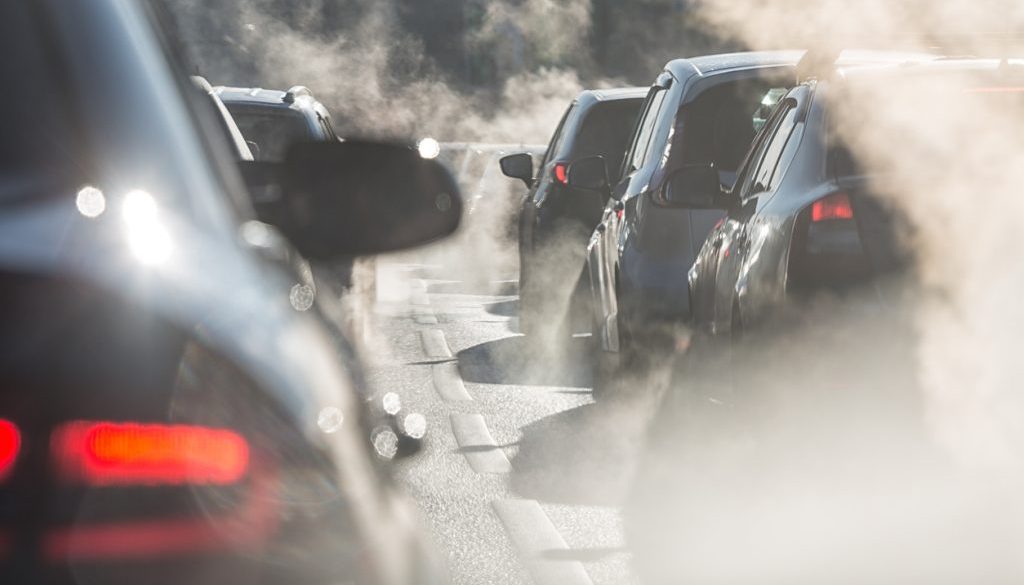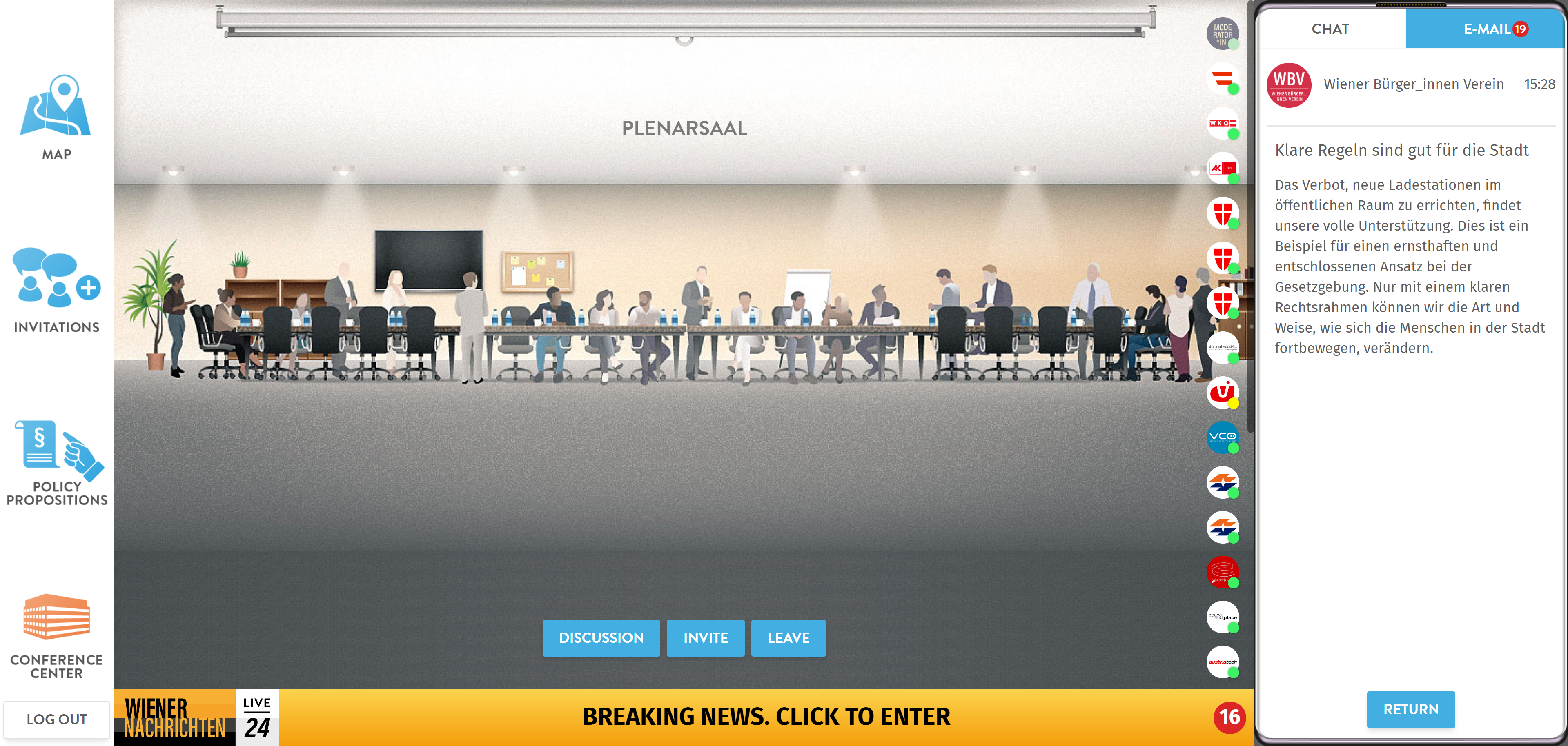
The city of Vienna, as well as Austria and the European Union, aims to dramatically decrease their transport-related emissions to fight the climate crisis. There are different visions of how to achieve this ambitious goal: wide introduction of electric vehicles in private transportation, a radical increase of the role of public transport, putting emphasis on shared mobility, or promoting active mobility and making the city more friendly to bicycle and pedestrian traffic. The question of the future of city transportation is also closely connected with ongoing discussion about the role of public space in the city, and how it should be managed. Altogether, these issues create a complex landscape that involves multiple decision-makers, organizations, and concerned citizens.

The simulation took place as an online event on the 23rd of November 2021 with over twenty representatives of different organizations active in the field of mobility in Vienna. Among them were representatives of the Federal Ministry of Climate Protection, Energy, Mobility, Innovation and Technology (BMK), the Vienna City Council, the Vienna municipal departments, the Chamber of Commerce, the Chamber of Labour, the city’s largest energy provider as well as public service organizations and NGOs specialized on mobility and transport.
The simulation took place in a virtual “conference center.” The participants were able to communicate verbally, as well as use special chat rooms for negotiations. The negotiation process that is the main part of the simulation takes place in a virtual “conference center” like the one presented in the picture. The participants are able to communicate verbally, as well as use special chat rooms for private negotiations. Using this kind of setting creates a familiar environment for the participants, similar to what they know from real conference and consultation events.
The policy simulation workshop engaged the participants in discussion about different visions for addressing the issues of decreasing emissions and public space management in Vienna. The participants debated and decided on fictional yet plausible policy propositions that aim to respond to real problems that the city faces.
The policy simulation and its outcomes are part of the Resource nexus for transformation to circular, resilient, and liveable cities in the context of climate change (RECREATE) project. The aim of the project is to identify roles, opportunities, and pathways for cities to foster a circular economy by reducing significantly the energy, water, and material resource uses, and related environmental impacts, to build resilience to ever-increasing uncertainties from globalization and climate change, and to become more livable for growing populations in different urbanization contexts in China and Europe.
The project partners are the IVL Swedish Environmental Research Institute, International Institute for Applied Systems Analysis (IIASA), Beijing Normal University, Fudan University, and Jinan University. The project is funded by the pilot called Sustainable and Liveable Cities and Urban Areas organized by JPI Urban Europe and the National Natural Science Foundation of China (NSFC) and involves working with the cities of Vienna, Shanghai, Malmö, and Beijing.